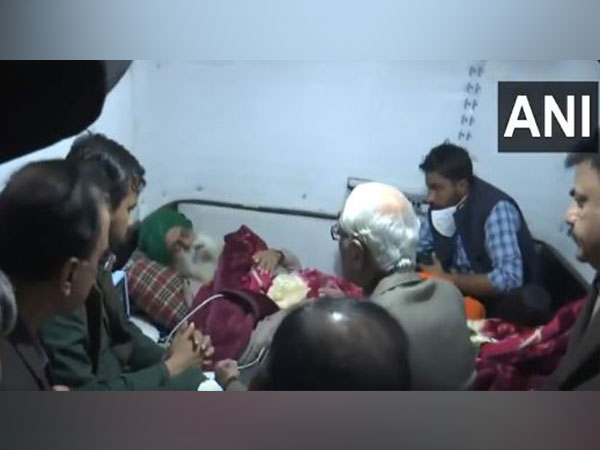Supreme Court Committee Engages Hunger-Striking Farmer Leader Amid Ongoing Protest
The Supreme Court-appointed committee met farmer leader Jagjit Singh Dallewal on hunger strike since November 26 at the Khanauri border. Despite requests, he refused medical aid. Meanwhile, the court adjourned a plea seeking aid for Dallewal, while a breakthrough in negotiation seems hopeful as talks continue.

- Country:
- India
The Supreme Court-appointed High-Powered Committee convened on Monday with farmer leader Jagjit Singh Dallewal, who persists in an indefinite hunger strike at the Khanauri border since November 26.
Deputy Inspector General (DIG) Patiala, Mandeep Singh Sidhu, disclosed that Dallewal declined medical assistance despite the committee's earnest requests. "The Supreme Court's committee met at the Khanauri border, addressing Dallewal's grievances, yet he steadfastly refused medical help," explained DIG Sidhu.
Simultaneously, the Supreme Court postponed hearing a plea concerning Dallewal's medical attention until Friday. Justices Surya Kant and NK Singh delayed the hearing after learning that Punjab officials persuaded protestors to engage with Justice (retd.) Nawab Singh, the committee chairperson coordinating negotiations.
Senior advocate Kapil Sibal, representing Punjab, informed the bench about the ongoing dialogue at 3 pm, expressing optimism for a resolution. "We've managed to engage protestors with Justice Nawab Singh today, which we hope will yield results," said Sibal, prompting the court to delay proceedings.
The court examined a contempt petition against Punjab's Chief Secretary and the DGP for not adhering to the December 20 ruling for Dallewal's medical aid and hospitalization. The court reiterated that medical provisions aim to safeguard his health, not to coerce him into ending the fast.
The court clarified that Dallewal may maintain his protest under medical supervision, stressing misinformation suggesting court pressure to break the fast. As the convener of the Samyukta Kisan Morcha, Dallewal demands a legal guarantee of minimum support price for crops, while the court ensures his access to essential medical care.
(With inputs from agencies.)










